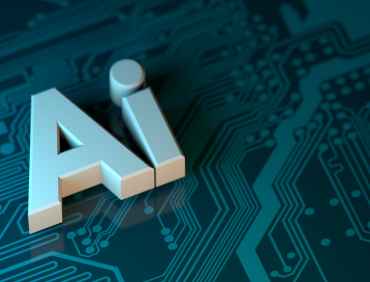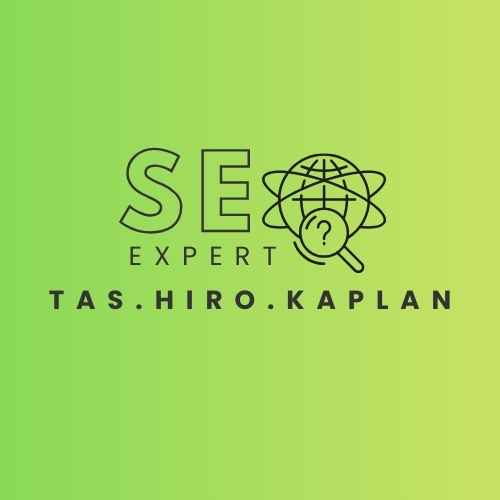
AI innovation is all about using advanced technologies to create new and improved products and services. It's about leveraging machine learning, natural language processing, and other AI capabilities to solve problems in ways that weren't possible before. Imagine having tools that can analyze massive amounts of data, predict trends, and even understand customer needs better than ever. This isn't just about making minor tweaks; it's about rethinking how you approach product development and service enhancement. By integrating AI, you can stay ahead of the competition, be more efficient, and deliver better experiences to your customers. In the next sections, we'll explore how AI can specifically enhance your product development and service offerings.
How Does AI Enhance Product Development?
AI can significantly boost your product development process by offering smarter, faster, and more efficient solutions. Imagine having a tool that can sift through mountains of data to uncover trends and insights that would take humans months to find. That's the power of AI.
One of the primary ways AI enhances product development is through machine learning and data analysis. By analyzing vast amounts of data, AI can identify patterns and predict outcomes with remarkable accuracy. This means you can make more informed decisions about which product features to prioritize, how to improve existing products, and what new products to develop.
AI also helps in the design phase. Tools like generative design use algorithms to explore all possible permutations of a solution, quickly generating innovative design options. For example, if you're developing a new piece of hardware, AI can propose multiple design variations, optimize for different criteria like cost, strength, and material usage, and help you choose the best option.
When it comes to testing and quality assurance, AI can automate and accelerate the process. AI-driven testing tools can simulate various scenarios and stress-test your product far more comprehensively than traditional methods. This not only speeds up the testing phase but also ensures a higher quality product by catching potential issues early.
Additionally, AI can help in personalizing products to better meet customer needs. By leveraging data from customer interactions, AI can suggest modifications or new features that would make the product more appealing. This level of personalization is something that traditional methods struggle to achieve.
In essence, AI acts like a supercharged assistant, helping you streamline your product development process, reduce time to market, and create products that are more aligned with customer expectations. With AI, you're not just developing products; you're innovating at a pace that's hard to match.
How Can AI Improve Service Offerings?
AI has the potential to transform the way you deliver services, making them more efficient, personalized, and responsive. By leveraging AI, you can enhance your service offerings in several key ways.
Personalized Customer Experience
One of the standout features of AI is its ability to analyze vast amounts of customer data to provide personalized experiences. By understanding your customers' preferences, purchase histories, and behavior patterns, AI can help you tailor your services to meet their specific needs. For instance, AI-driven recommendation engines can suggest products or services that align with individual customer preferences, increasing satisfaction and loyalty.
Predictive Maintenance
In sectors like manufacturing or IT services, AI can be a game-changer through predictive maintenance. AI algorithms can analyze data from various sensors and systems to predict when equipment might fail or need servicing. This proactive approach not only reduces downtime but also saves costs associated with unexpected repairs. By maintaining equipment before issues arise, you ensure smooth and uninterrupted service delivery.
Efficient Customer Support
AI-powered chatbots and virtual assistants are revolutionizing customer support. These tools can handle a wide range of inquiries, from answering frequently asked questions to troubleshooting common problems. Available 24/7, they provide instant support, improving customer satisfaction while freeing up human agents to focus on more complex issues. Moreover, AI can analyze customer interactions to identify common pain points and suggest improvements to your support processes.
Streamlined Operations
AI can automate many routine tasks, allowing your team to focus on more strategic activities. For example, AI can manage scheduling, process invoices, and handle data entry with greater speed and accuracy than humans. This not only boosts productivity but also reduces the risk of errors, leading to more reliable and efficient service delivery.
Enhanced Decision-Making
AI can assist in making data-driven decisions by analyzing trends and patterns that might not be immediately obvious. This can be particularly useful in strategic planning and resource allocation. For example, AI can help you understand which services are most in demand, identify emerging market trends, and allocate resources more effectively to meet customer needs.
By integrating AI into your service offerings, you can stay ahead of the competition and provide a superior experience to your customers. It’s not just about adopting new technology; it’s about transforming the way you operate to deliver greater value.
What Are the Key AI Technologies for Innovation?
To truly harness the power of AI in driving innovation, it's essential to understand the key technologies that make this possible. Let's dive into the three main areas where AI shines: Machine Learning and Data Analysis, Natural Language Processing (NLP), and Computer Vision.
Machine Learning and Data Analysis
Machine learning (ML) is at the heart of AI innovation. It involves algorithms that learn from data, allowing systems to improve their performance over time without being explicitly programmed. By analyzing vast amounts of data, ML can uncover patterns and insights that were previously hidden. This can help you predict market trends, optimize supply chains, and even personalize customer experiences. For instance, using ML, you can develop products that better meet customer needs by understanding their preferences and behaviors more accurately.
Natural Language Processing (NLP)
NLP enables machines to understand and interact with human language. This technology is crucial for creating more intuitive and user-friendly products and services. Think about chatbots that provide 24/7 customer support, or virtual assistants that help manage tasks and schedules. By integrating NLP into your business, you can enhance communication with your customers, making interactions more efficient and satisfying. Moreover, NLP can analyze customer feedback, reviews, and social media mentions to gauge public sentiment and improve your offerings accordingly.
Computer Vision
Computer vision allows machines to interpret and make decisions based on visual data. This technology is transforming industries by enabling automated quality inspections, facial recognition, and even autonomous driving. For your business, incorporating computer vision can lead to significant improvements in product quality and safety. For example, it can be used in manufacturing to detect defects in products before they reach customers, ensuring higher standards and reducing returns. Additionally, computer vision can help in developing innovative features for consumer electronics, like enhanced camera functions and augmented reality applications.
Understanding these key AI technologies and how they can be applied to your business is the first step towards fostering innovation. By leveraging machine learning, NLP, and computer vision, you can create smarter, more efficient products and services that set you apart in the competitive market.
How to Implement AI in Your Business?
Implementing AI in your business can seem overwhelming, but breaking it down into manageable steps can help. Here's a straightforward guide to get you started.
Identify Opportunities
First, identify where AI can add the most value in your business. Look for repetitive tasks, data-heavy processes, or areas where decision-making can be improved. This could be anything from automating customer service with chatbots to using predictive analytics for sales forecasting.
Choose the Right AI Tools
Once you've pinpointed the opportunities, select the appropriate AI tools. There are many AI solutions available, from off-the-shelf software to custom-built applications. Consider factors like ease of integration, cost, and scalability. Some popular options include machine learning platforms, natural language processing tools, and computer vision systems.
Gather and Prepare Data
AI relies on data to function effectively. Start by gathering relevant data from your business operations. This might include customer interactions, sales records, or inventory data. Ensure your data is clean and well-organized, as high-quality data is crucial for accurate AI predictions and insights.
Train Your AI Models
With your data ready, the next step is to train your AI models. This involves feeding your data into the AI system and allowing it to learn patterns and make predictions. Depending on the complexity, this phase can take some time and may require adjustments to improve accuracy.
Integrate AI into Your Workflow
After training your AI models, integrate them into your existing workflows. This might mean embedding AI features into your current software or using AI tools alongside your usual processes. Ensure your team understands how to use these new tools and provide training if necessary.
Monitor and Optimize
AI implementation doesn't end with integration. Continuously monitor the performance of your AI systems and gather feedback from users. Use this information to make necessary adjustments and optimizations, ensuring your AI remains effective and aligned with your business goals.
For more detailed guidance and to take your business to the next level, consider exploring resources and support from nexttech.pwc. They offer expert insights and advanced solutions to help you harness the power of AI effectively.
Summary: Taking Your Business to the Next Level with PWC
In the rapidly evolving digital landscape, businesses must stay ahead by leveraging advanced technologies. By harnessing the power of AI, you can drive significant innovation in product development and service offerings. AI helps you understand your customers better, predict market trends, and make data-driven decisions. This not only improves efficiency but also gives you a competitive edge.
At PWC, we help companies like yours navigate this transformation. Our expertise in AI and advanced technologies ensures you get the best solutions tailored to your needs. By integrating AI into your business processes, you can create impactful results and establish yourself as a market leader. Ready to take your business to the next level? Let's harness the power of AI together and drive your success forward.
